 Crayon's Competitive Intelligence Spotlight is an interview series where we chat with intelligence professionals to get a glimpse into their careers and gain unique insight into competitive strategy. In this edition of the Competitive Intelligence Spotlight Series, we shine the light on Joe Booth, Senior Director of Sales Enablement and Competitive Intelligence at SecureAuth Corporation.
Crayon's Competitive Intelligence Spotlight is an interview series where we chat with intelligence professionals to get a glimpse into their careers and gain unique insight into competitive strategy. In this edition of the Competitive Intelligence Spotlight Series, we shine the light on Joe Booth, Senior Director of Sales Enablement and Competitive Intelligence at SecureAuth Corporation.
ED: What is your role?
JB: I’m the Senior Director of Sales Enablement and CI. Competitive intelligence and Sales Enablement go hand in hand because this is all about enabling the field to win deals. To do that, they have to have a certain baseline of competitive intelligence, knowledge about why we win and lose against our competitors, and then once you have that baseline knowledge, you start training people on it.
At SecureAuth, we run a competitive intelligence program that's based on win/loss data, and we have a lot of internal resources focused on understanding the nuances of a deal. We talk to the account team on every deal that we win, and then those that we lose. We also validate any trends that we see with our partners, as well as third parties like analysts, and also just whatever public information is out there that you could find online.
That's what competitive intelligence is really all about, and then you start building training programs, reinforcement, and refining processes that are going to help put you in a better position. That's why competitive intelligence and sales enablement really do go hand in hand.
ED: What does the company do?
JB: SecureAuth is in the cybersecurity space, specifically, Identity Access Management, or IAM.
SecureAuth has helped organizations prevent the misuse of credentials and eliminate identity related breaches. As threat levels increase and cyber-criminals become more sophisticated, SecureAuth can solve many of the security challenges large enterprises face related to protecting their complex IT ecosystemSecureAuth offers the best adaptive authentication experience in the industry. With the ability to take into consideration context, risk, and other data to deliver the proper workflow to that user and application at the point of authentication.
ED: Tell me a little bit about your career path. What was your first job, and what else happened along the way to bring you to where you are now?
JB: I have a very diverse background. I'm proud of the fact that I started off as a snowboard instructor, and I was in the snowboard industry for ten years. I was working in snow sports education for a long time, and then I started building websites for my friends who were pro snowboarders and pro skaters, who were starting to come out with their own brands. I was helping them build their ecommerce sites.
As I got deeper into building websites and blogs, and integrating them with stores, I realized that I really liked software. So, I went to work at Oracle as a BDR. I took all that communication background that I had from being a snowboard instructor, and I applied it to sales: What's motivating my buyers? What are the messages that are going to resonate with them? How do I understand the product, and articulate it effectively?
Then I worked at a services company selling implementation for the mobile banking industry for about two years. Then I worked for a company in the CRM space, specifically the quote to cash space, for four years, and I was an account executive there. At that job, I got really good at beating one particular competitor. So, I was at Presidents’ Club, and our CEO asked me if I would be willing to put together a program specifically against competing against this competitor. That was my first introduction to competitive intelligence. I had to be able to understand why we would lose against them, what our strengths and weaknesses were, how to qualify the right deal when we see this competitor, and then be able to articulate that to the other reps that were within my company. That way, they had an increased win rate against this competitor as well. I put together a very effective program, then we scaled it out to our other primary competitors as well across the portfolio of products that we sold. By that point, I was no longer selling, I was just focused on putting together a competitive intelligence program, and that's when we actually purchased Crayon.
Then it was a natural progression to sales enablement; the person who was leading sales enablement left, so I took over that role. I started to do all of the onboarding and new hire training sales certifications for our salespeople.
Today, I run our internal sales enablement as well as our channel and partner enablement to make sure all of our partners are trained on how to sell and implement our solution technically. I also run our customer training and certification program, SecureAuth University, to help our customers drive adoption and get the most out of their purchase. This program is to help our customers get the most out of the product to increase adoption and the value of the purchase that they've made.
ED: How do you measure the impact of your sales enablement resources?
JB: It’s a lot of feedback. We talk to the field a lot to find out what they need. We also want to figure out what's being used because it’s a fine line between what they need versus what they want.
A lot of people may come to us with a request, and if we have the bandwidth to create content for one-off requests, we can do that. But for the most part, we're trying to really understand what they need to be effective. And at scale, you’ve got to look at the entire sales organization, not just individuals.
Once we build that content, we look at things like adoption, how often a particular resource is being downloaded, whether or not it's being shared to our customers, and then we refine from there, figuring out what we need to change.
ED: What skills do you think are necessary for someone who wants to work in competitive intelligence?
JB: It's a mix of analytical thinking as well as effective interpersonal communication.
You have to be able to look at data at a macro level, to understand what the trends are. And you have to be able to validate that trend at the individual level. If you're looking for that ideal profile, they have to be analytical. They have to be able to understand trends and be able to see things shaping in the market.
And they also need good communication skills, the ability to talk to people, such as salespeople, to articulate takeaways and validate trends and strategies with the field. They need to be able to write effective content that is going to be concise, but capture the essence of the necessary message. It’s a mixed skillset, and it's not an easy role to hire for.
ED: At what stage do you think a company should begin investing in competitive intelligence?
JB: Anybody that says that they don't have competitors is not a good business person. They’re completely closed-minded and they aren't going to last in business very long.
If you’re a startup, and you say you don't have any competitors, there are 1000 other people in incubators working on some version of your idea. Only a small percentage of those are going to make it, and then of those, there's only going to be a few Uber's, right? And then even Uber has competition - it's called Lyft. And there are a bunch of other companies that are trying to improve upon Uber and Lyft, right now. Within the next ten years, those emerging companies are going to completely change the market. Everybody has competition.
But, when is the right time to start thinking about hiring a CI person or dedicating internal resources towards competitive intelligence? I think it’s never too early. I think you have to have somebody that dedicates a portion of their time towards this role because I guarantee your competitors are moving a lot faster than you think they are.
ED: What are the biggest changes you’ve seen in CI over the last 5-10 years, and where do you see it going?
JB: I think the automation of competitive intelligence is one of the biggest trends; just look at the progression of Crayon. A couple of years ago, when we were evaluating and buying Crayon, it was a very good tool for consolidating data that was out there in the ether. And now, you have the ability to build battlecards, reports, and alerts based off of the data that's automatically collected. So you're able to take action on all of that data while eliminating some of the manual processes.
I think that the consolidation of information was phase one, and the automation of content creation is phase two. What I’m really looking forward to is phase three: capturing win/loss data from the CRM, and incorporating that into the content creation phase. That would be killer - using AI to analyze competitive results, tell us the reasons why we're winning and losing, and helping us win more deals based on the insights discovered from that analysis.
ED: What are your favorite CI resources? (books, blogs, newsletters, etc)
JB: I try and take more of an abstract view when it comes to professional resources. I am a big fan of old literature, like Marcus Aurelius’s The Emperor's Handbook. It talks a lot about being able to organize troops and analyze the enemy. Of course, The Art of War is really good for short anecdotes.
As far as modern business, Extreme Ownership is one of the books that’s my go-to. There's so much knowledge in there about organizing effective teams, being able to understand what your enemies are doing, so you can put together tactics to beat your enemies. It’s also about having accountability at a personal level to make sure that you're doing what you need to be doing, as well as holding other people accountable, whether they are your manager, or whether they're people that report to you, everybody has to have that mutual respect for one another.
ED: What’s the best career advice you’ve ever received?
JB: Dan Dal Degan, he goes by Triple Dee, gives great advice (though I never reported to him). He talked about finding a great team or a great leader and following them. A lot of people in business and in life try and blaze their own trails. It can be really scary and really hard, but it can also be really fulfilling. But an easier way to do that is if you find a group of people that you trust, and you work well with, and progress with them. As your leader moves up, gets promoted from director, to VP, SVP, and then C-suite; if they trust you, and you've been able to help them progress, they will bring you up as well. And that is going to allow you to progress your career as they progress in their career.
And I've been really fortunate. There's someone that I work for right now, Ankur Ahlowalia, who has been a mentor of mine for the last several years. And we've done exactly what Triple Dee talked about. As Ankur’s progressed, he's brought me up as well. And I like to think that I've helped him progress, too.
ED: When you’re not at work - how do you like to spend your free time?
JB: Now I live in San Francisco, so I surf on the weekends. I’ve got a Golden Retriever and a little Yorkie, so I love walking my dogs every day. And, of course, there’s nobody I’d rather be hanging out with than my wife - whether we’re walking the dogs or just chilling on the couch.
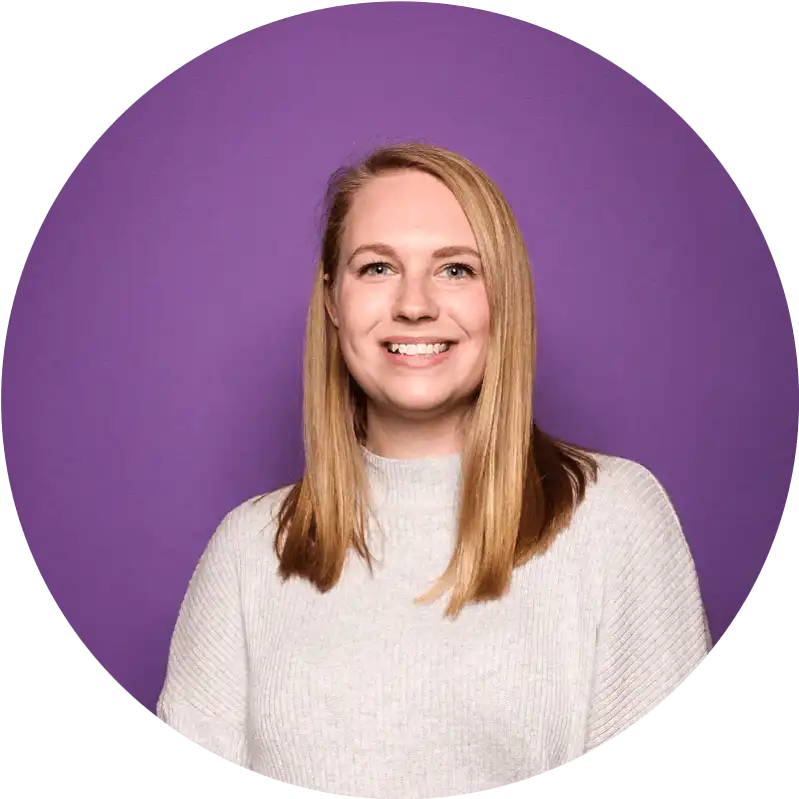
Related Blog Posts
Popular Posts
-
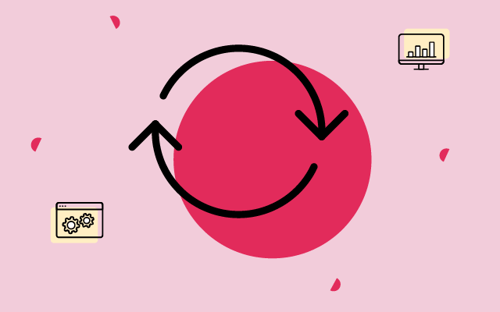 How to Create a Competitive Matrix (Step-by-Step Guide With Examples + Free Templates)
How to Create a Competitive Matrix (Step-by-Step Guide With Examples + Free Templates)
-
 Sales Battlecards 101: How to Help Your Sellers Leave the Competition In the Dust
Sales Battlecards 101: How to Help Your Sellers Leave the Competition In the Dust
-
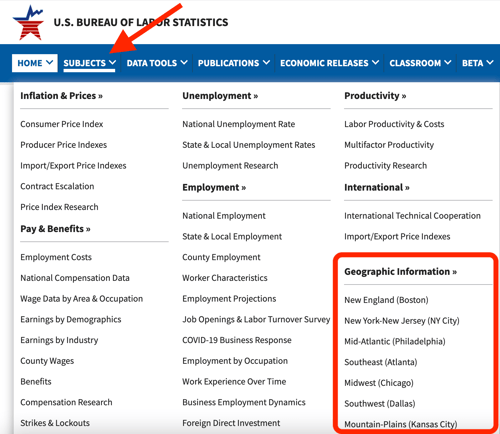 The 8 Free Market Research Tools and Resources You Need to Know
The 8 Free Market Research Tools and Resources You Need to Know
-
 6 Competitive Advantage Examples From the Real World
6 Competitive Advantage Examples From the Real World
-
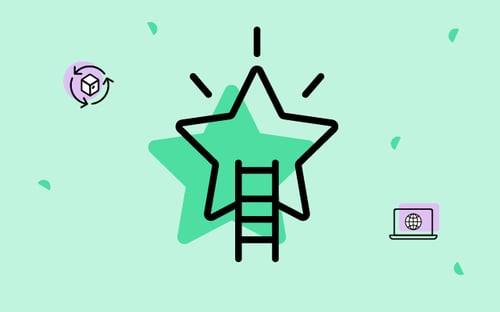 How to Measure Product Launch Success: 12 KPIs You Should Be Tracking
How to Measure Product Launch Success: 12 KPIs You Should Be Tracking

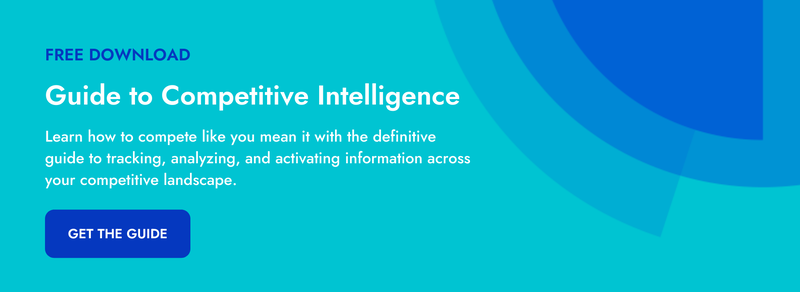



%20(1).png?width=500&name=CI%20Strategy-CI%20Audit%20(1)%20(1).png)